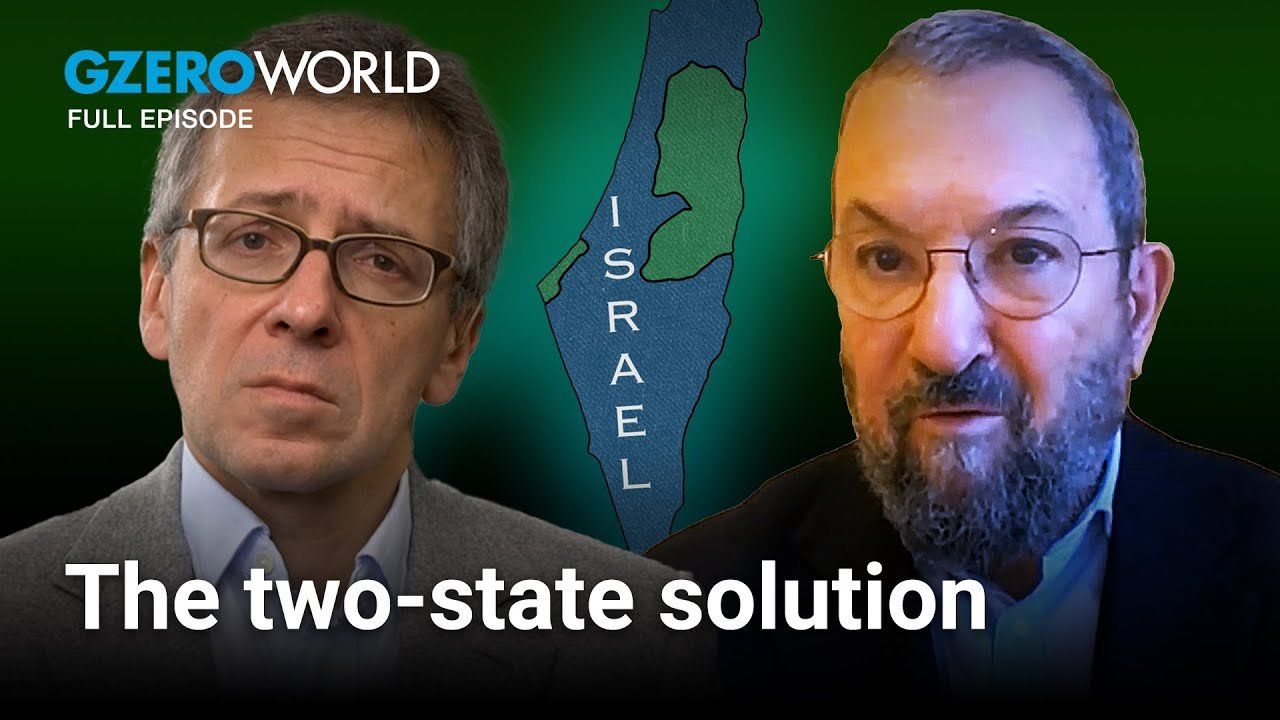GZERO World with Ian Bremmer
Is an Israel-Palestine two-state solution possible?

Is an Israel-Palestine two-state solution possible? | GZERO World with Ian Bremmer

Is a two-state solution still possible for Israel and Palestine? Ehud Barak weighs in.
On GZERO World, Ian Bremmer sits down with former Israeli Prime Minister Ehud Barak to discuss the ongoing war with Hamas, the escalating humanitarian crisis in Gaza, and whether the idea of a two-state solution with Palestine is still realistic. Barak participated in the 2000 Camp David summit with Yasser Arafat and has arguably come closer than any Israeli leader in modern to securing peace, though he ultimately failed.
“I’ve never lost sight of the idea that the only viable, long-term solution for this conflict in the Middle East remains, unfortunately, the two-state solution,” Barak tells Bremmer.
Today, Barak is critical of Prime Minister Benjamin Netanyahu’s policies of tacitly viewing Hamas in Gaza as an asset and the Palestinian Authority in the West Bank as a liability, instead of the other way around. He also admits that they should have gotten more humanitarian aid into Gaza sooner, but argues that the goal of destroying Hamas is critical for Israel’s future. Ultimately, he says the 240 estimated hostages still being held captive should be prioritized above all else, and that failing rescue them would amount to “abandonment” by the Israeli government.
America’s new National Security Strategy confirms what Europeans have feared for months: Washington now sees a strong, unified European Union as a problem to be solved, not an ally to be supported.
In this episode of Tools and Weapons, Microsoft Vice Chair and President Brad Smith sits down with Ed Policy, President and CEO of the Green Bay Packers, to discuss how purpose-driven leadership and innovation are shaping the future of one of the world’s most iconic sports franchises. Ed shares how technology and community-focused initiatives, from Titletown Tech to health and safety innovations on the field, are transforming not just the game of football, but the economy and culture of Green Bay itself. He explains how combining strategic vision with investment in local startups is keeping talent in the Midwest and creating opportunities that extend far beyond Lambeau Field.
Subscribe and find new episodes monthly, wherever you listen to podcasts.
More than a week after Hondurans cast their ballots in a presidential election, the country is still stuck in a potentially-dangerous post-election fog.